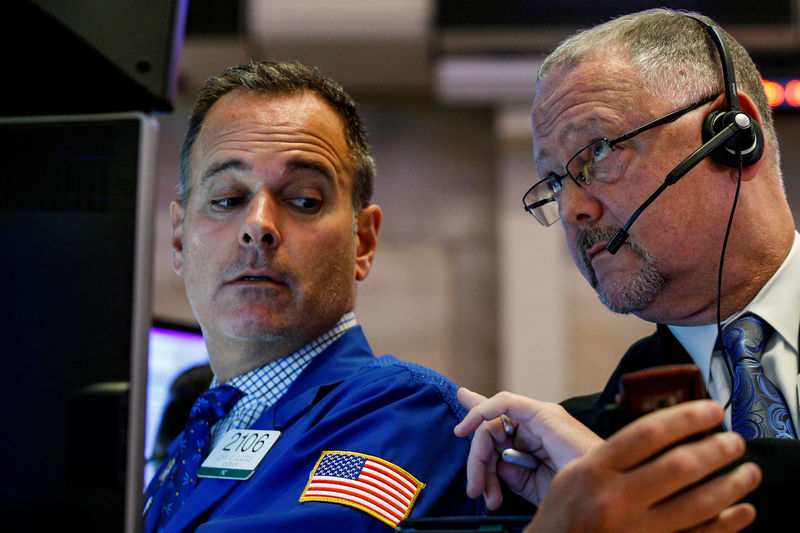By Herbert Lash
NEW YORK (Reuters) - A gauge of global equities rose and shares on Wall Street set new highs on Friday as investors shrugged off the latest missile test by North Korea, while the dollar eased on unexpected weak economic data that dimmed the likelihood for a U.S. rate hike.
New closing highs were set by the Dow and the S&P 500, which closed above the 2,500-mark for the first time. The Nasdaq set an intraday record on a jump in technology shares.
Brent oil prices, the global benchmark, held near five-month highs and posted their biggest weekly gain since late July. Forecasts for rising demand and the gradual restart of U.S. oil refineries after Hurricane Harvey pushed up prices.
Gold fell after a European Central Bank official called for scaling back the bank's stimulus program. Losses were capped when weaker-than-expected U.S. retail sales renewed doubts the Federal Reserve will raise rates in December.
Yields on longer-dated U.S. Treasury maturities briefly added to earlier declines after the weak data revived some concerns about slower economic growth in the third quarter and the possibility of a Fed rate hike.
Interest rates are lower than at the beginning of the year, making stocks more attractive as does a back-drop of a growing global economy, said Rahul Shah, chief executive of Ideal Asset Management in New York.
"We made it through the summer without a significant correction. As we head into earnings season, there's a potential for the market to go even higher," Shah said.
Some of the big tech companies that form a large part of the indexes offer above-average growth at reasonable valuations, he said. Any dip in the equity market because of North Korean missile tests offer investors a buying opportunity, he said.
"They tend to talk loud with their threats," Shah said about North Korea. "But in terms of the actual commission of those threats, I don't think it's destabilizing to the market."
MSCI's gauge of stocks across the globe (MIWD00000PUS) gained 0.11 percent to set a new high for an index that tracks the performance of more than 2,400 stocks in 47 countries.
Japan's Nikkei (N225) closed 0.5 percent higher and a more than 3 percent jump for the week was its weekly performance since November
On Wall Street, the Dow Jones Industrial Average (DJI) rose 64.86 points, or 0.29 percent, to 22,268.34. The S&P 500 (SPX) gained 4.61 points, or 0.18 percent, to 2,500.23 and the Nasdaq Composite (IXIC) added 19.38 points, or 0.3 percent, to 6,448.47.
For the week, the Dow gained 2.16 percent, the S&P 500 added 1.58 percent and the Nasdaq 1.39 percent.
The tech sector was boosted by Nvidia's (O:NVDA) 6.3 percent jump to a record high after Evercore ISI raised its price target on the stock.
The S&P 500 technology index (SPLRCT) has been the best performing sector this year, rising 26 percent and far outpacing the broader S&P 500's 11.7 percent gain. The pan-European FTSEurofirst 300 index (FTEU3) of leading regional shares lost 0.41 percent to close at 1,495.38.
U.S. retail sales unexpectedly fell in August as Hurricane Harvey likely depressed motor vehicle purchases, dropping 0.2 percent last month. Economists polled by Reuters had forecast retail sales nudging up 0.1 percent.
The disappointing U.S. data, which included industrial output in August, came after a report that showed the strongest increase in consumer prices in seven months.
Benchmark 10-year U.S. Treasury notes (US10YT=RR) were little changed in price to yield 2.2005 percent.
A eurozone government bond selloff resumed after hawkish rhetoric from a Bank of England policymaker bolstered the notion that central banks across the developed world are moving into tightening mode.
German Bunds (DE10YT=RR) fell 1 basis points in price to yield 0.433 percent.
Brent oil prices, the global benchmark, held near five-month highs and posted their biggest weekly gain since late July.
U.S. crude
The dollar index (DXY) fell 0.39 percent, while the euro

U.S. gold futures